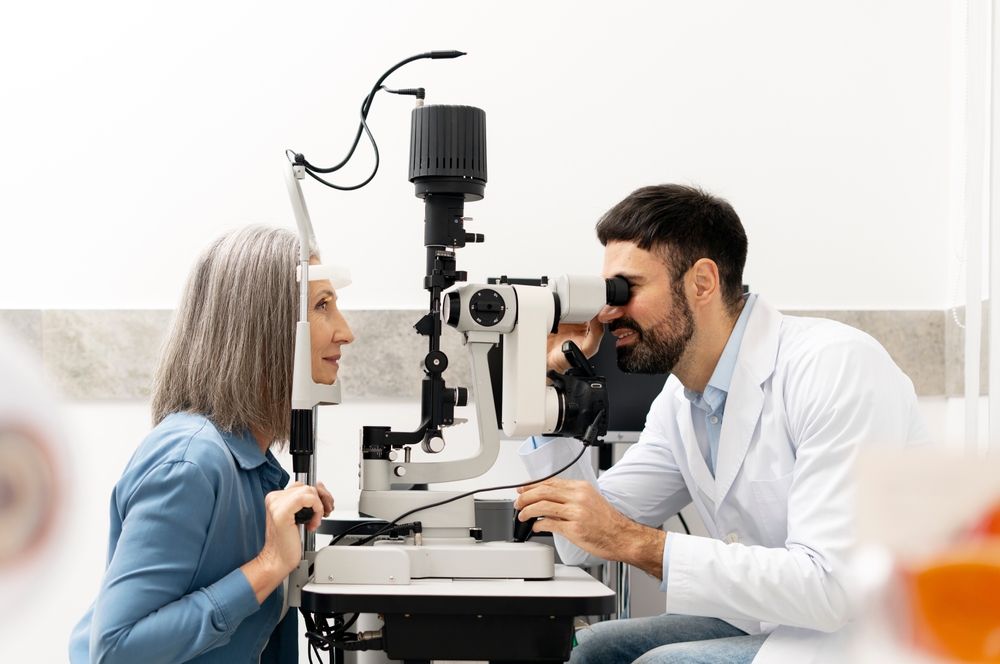
A comprehensive eye exam is a thorough evaluation of your vision and eye health. Unlike a basic vision screening, a comprehensive exam assesses how well your eyes work together and checks for early signs of potential issues. During the exam, your optometrist will evaluate your visual acuity, eye alignment, focusing ability, and eye movement. They will also examine the internal and external structures of your eyes, often using wide-field retinal photography to get a complete view.
What Can a Comprehensive Eye Exam Detect?
A comprehensive eye exam can detect a wide range of conditions and health concerns, including:
Refractive Errors: These include nearsightedness, farsightedness, and astigmatism. Identifying these errors allows your optometrist to prescribe glasses or contact lenses for clearer vision.
Eye Conditions and Diseases: Exams help identify early signs of glaucoma, cataracts, macular degeneration, diabetic retinopathy, and other ocular diseases that may not show symptoms in their early stages.
Systemic Health Issues: Your eyes can reveal much about your overall health. During an exam, signs of diabetes, high blood pressure, high cholesterol, and even certain cancers may be discovered.
How Often Should You Schedule an Eye Exam?
The frequency of comprehensive eye exams depends on several factors, including age, overall health, and whether or not you wear corrective lenses. However, annual eye exams are highly recommended for most individuals to maintain optimal vision and detect any changes early.
For children, early eye exams are crucial for healthy visual development. The first eye exam should take place between 6 to 12 months of age, followed by another at age 3, and again before starting school. After that, annual exams are recommended to monitor vision changes, support academic performance, and catch any issues as their eyes continue to grow and develop.
Adults benefit greatly from yearly eye exams as well, especially for individuals who wear glasses or contact lenses. Regular visits help ensure prescriptions remain up to date and allow your optometrist to monitor for early signs of eye conditions and overall health concerns.
Seniors, especially those over the age of 60, should have comprehensive eye exams every year. As the risk of age-related eye conditions such as cataracts, glaucoma, and macular degeneration increases with age, annual exams are essential for early detection and timely treatment.
*Individuals at high risk, including those with diabetes, a family history of eye disease, or who take medications that can affect the eyes, may require more frequent exams. In these cases, your optometrist will develop a personalized schedule to ensure your eyes are closely monitored and well cared for.
Schedule Your Comprehensive Eye Exam at Eyeworks of San Mateo Today
For happy, healthy eyes, call us today at (650) 343-2080 or email us at info@myeyeworks.com to schedule your next comprehensive exam.









